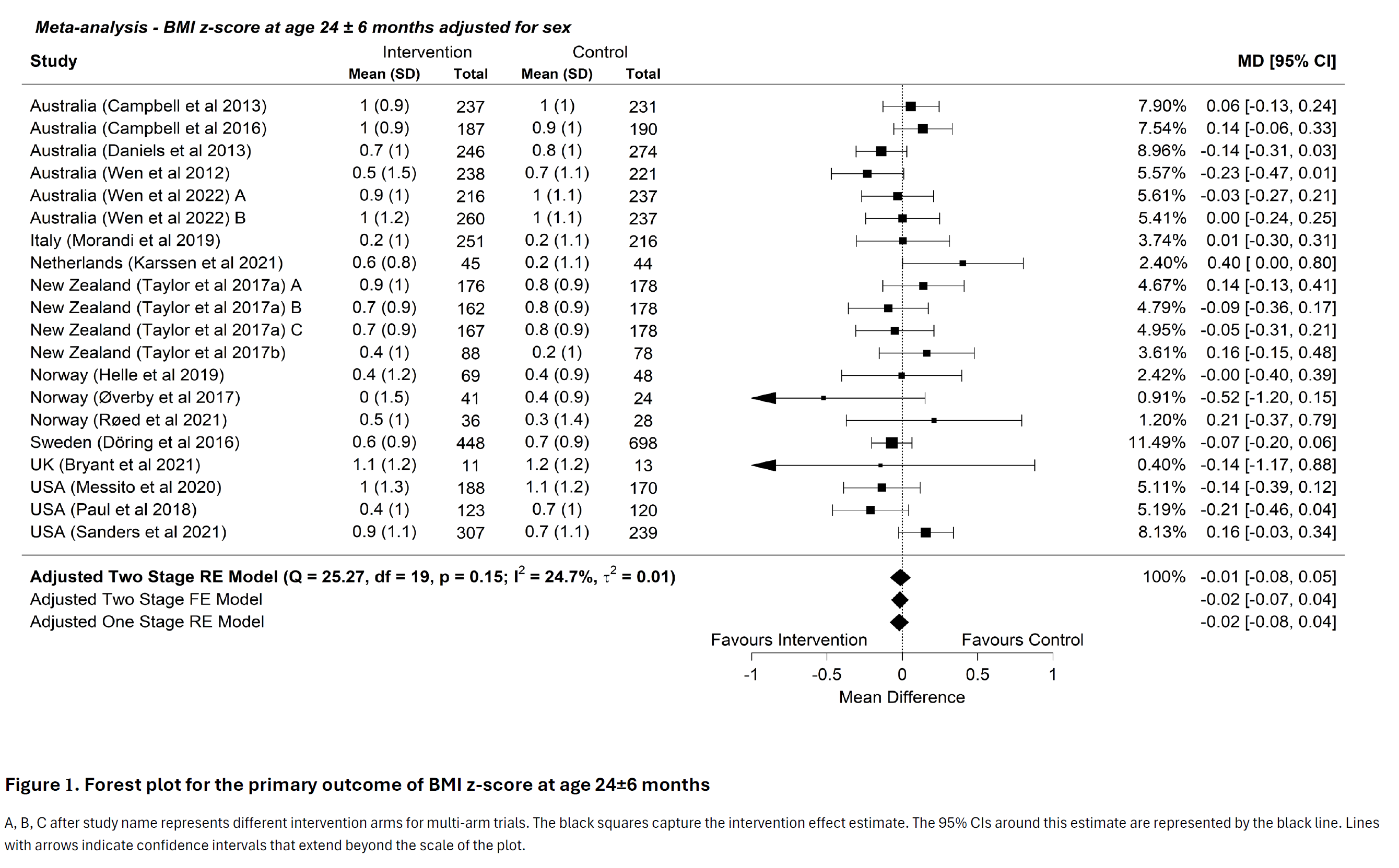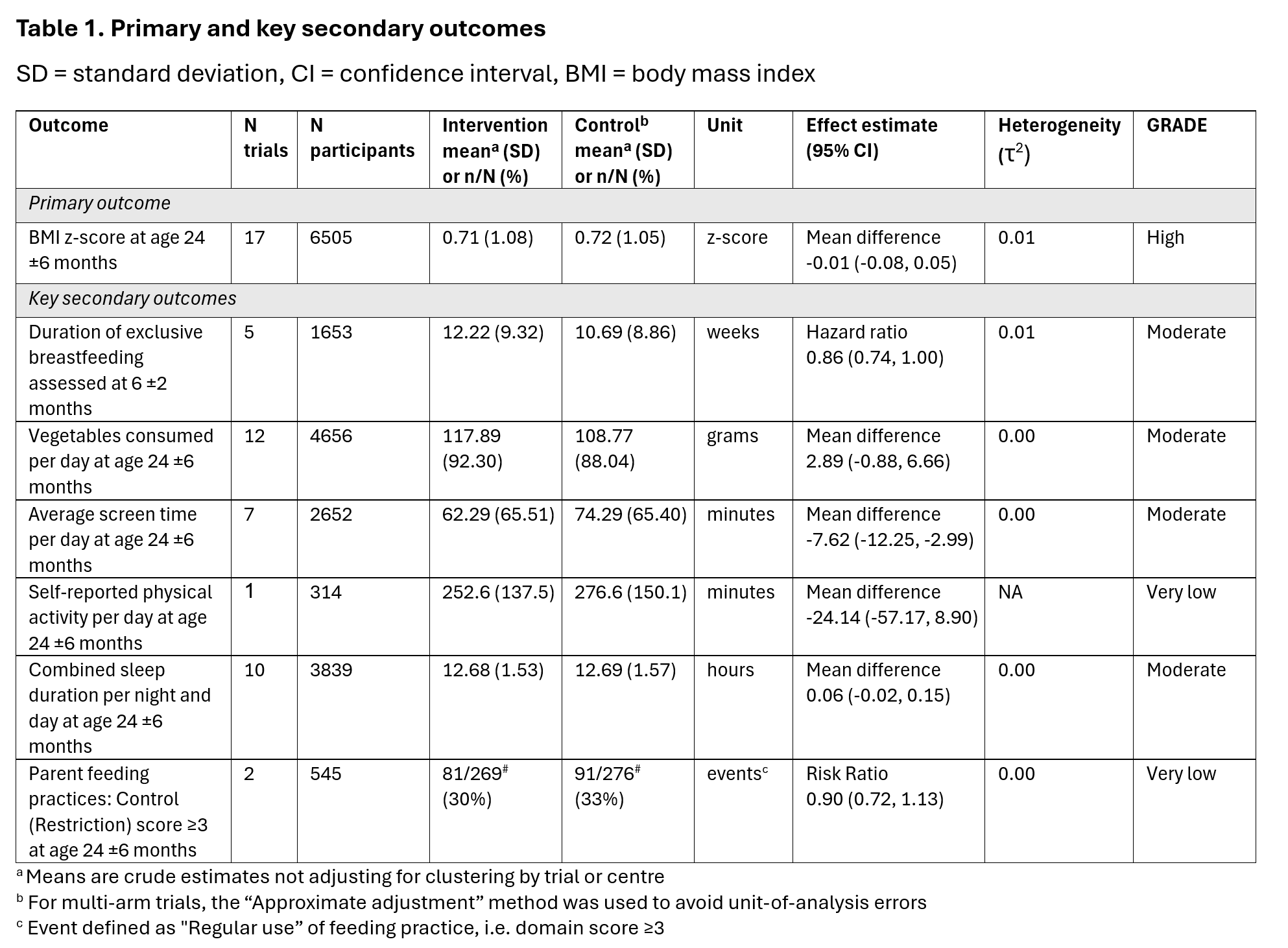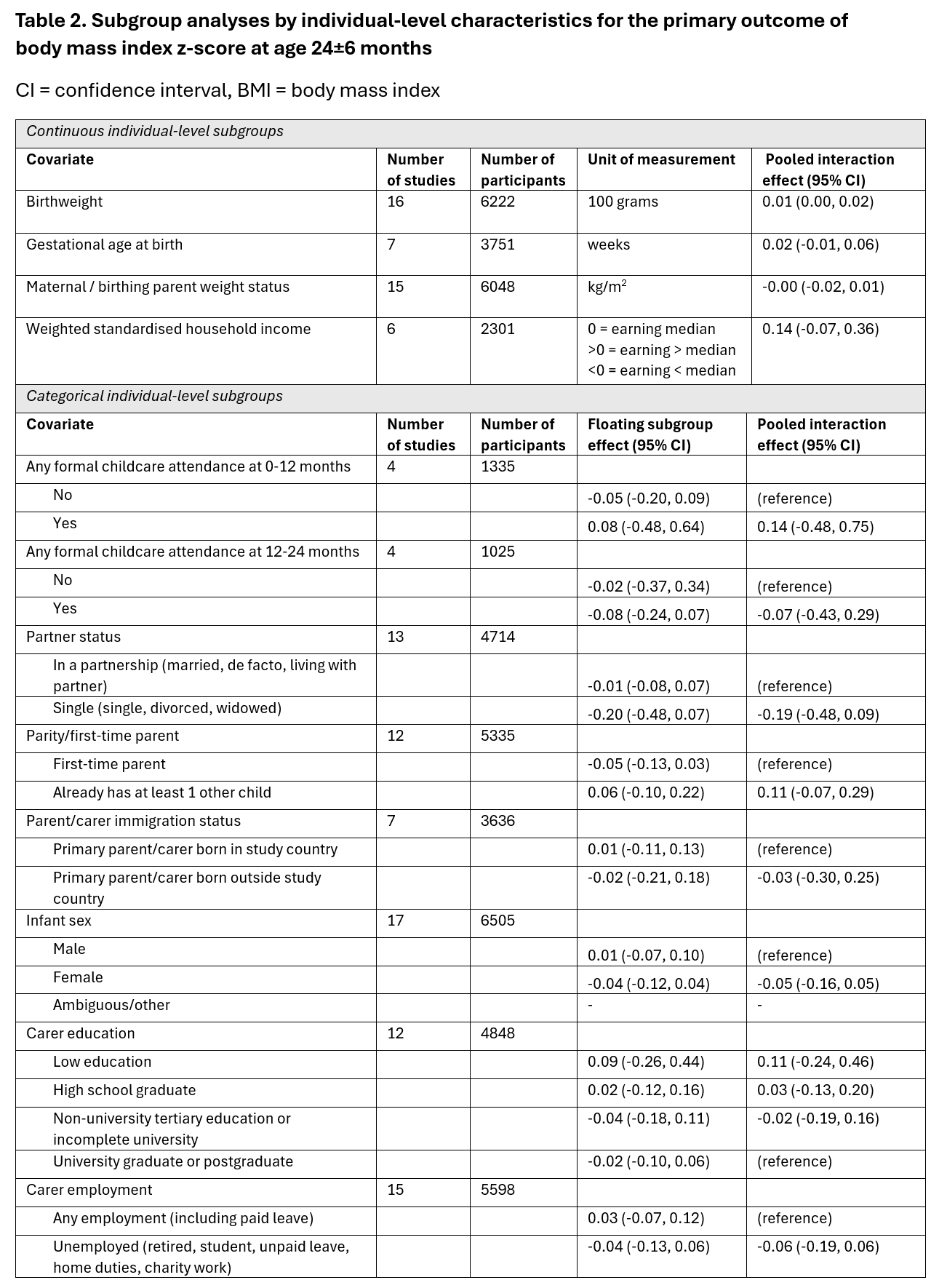Oral Presentation ESA-SRB-ANZOS 2025 in conjunction with ENSA
Parent-focused behavioural interventions for the prevention of early childhood obesity: results of the TOPCHILD systematic review and individual participant data meta-analysis (127543)
Childhood obesity is a major global health issue. We aimed to evaluate the effectiveness of parent-focused behavioural obesity prevention interventions on child body mass index (BMI) z-score at age 24±6 months and weight-related behavioural outcomes.
We conducted an individual participant data (IPD) meta-analysis. We systematically searched databases and trial registers for randomised controlled trials comparing parent-focused behavioural obesity prevention interventions commencing before 12 months of age with usual care, no intervention or attention control. Investigators of eligible trials were invited to join the TOPCHILD Collaboration and share their IPD. Screening, data checking, re-coding, integrity, risk of bias and GRADE assessments were conducted in duplicate. The primary outcome was BMI z-score at age 24±6 months. Key secondary outcomes included obesity-related behaviours covering diet, feeding, physical activity, sleep and parenting. We conducted intention-to-treat two-stage random effects meta-analysis to determine effects overall and for pre-specified subgroups.
We included 31 trials with IPD from 28,825 children. Behavioural interventions had no effect on BMI z-score at age 24±6 months (17 trials, 6505 participants, mean difference [MD] -0.01; 95% confidence interval [CI] -0.08 to 0.05, high certainty, Fig 1, Table 1). This result was robust across individual-level subgroups (e.g. socioeconomic position, parental weight status, maternal age, Table 2) and trial-level subgroups (e.g. mode of intervention delivery, dose, setting, country), as well as sensitivity analysis accounting for different analysis methods, missing data, risk of bias and integrity. Interventions had no effect on key secondary outcomes, except for a small reduction in screen time at age 24±6 months (Table 1).
This large IPD meta-analysis of 31 trials found no effect of parent-focused early behavioural interventions on child BMI z-score at age 24±6 months. This supports the need for a multi-level approach within a broader systems framework to address the complex social and environmental determinants of childhood obesity.


